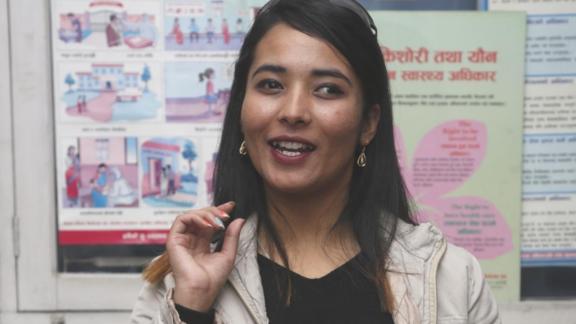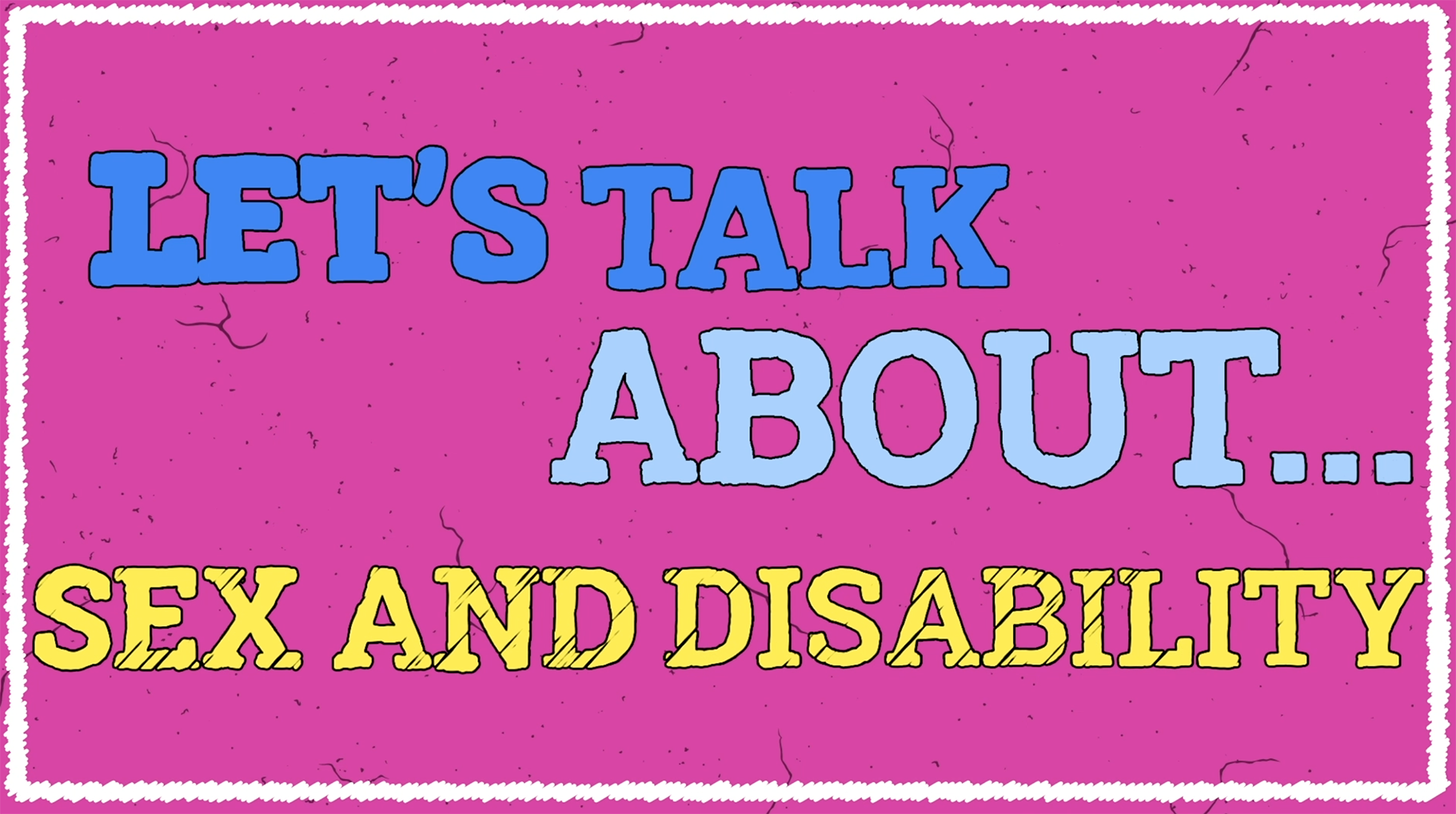“Menstruation does not stop just because of lockdown,” says Sanjiya Shrestha (pictured), a Peer Educator at the Family Planning Association of Nepal, an IPPF Member Association.
But when the second wave of the COVID-19 pandemic hit Nepal in early 2021, it had a profound impact on the lives of women, girls and people living with disabilities. Strict measures imposed during the country’s second national lockdown restricted access to and availability of essential sexual and reproductive health services including sanitary kits, maternal health care, safe delivery services, contraception, abortion services, and many others.
“During COVID-19, we were not able to be close to anyone or touch each other. Even getting outside to buy sanitary items was difficult,” said Shrestha, who is visually impaired. “But some people with disabilities require care from others, and they need to be close together. It was difficult for people in wheelchairs and visually impaired people to get outside. In that way, the pandemic has had an even greater impact on people with disabilities.”
Greater need brings innovation
The Family Planning Association of Nepal (FPAN) works with over 200 clinical service providers and over 600 community-based distributors to ensure women and girls get access to essential SRH services during this critical health emergency. With the support of the Australian Government, FPAN has also partnered with a number of community-based organizations including the Blind Youth Association Nepal, the Nepal Disabled Women Association, Community Based Rehabilitation and Action on Disability Rights and Development Nepal.
Part of Shrestha’s work as a peer educator is to regularly conduct training sessions to educate people about gender and sexual and reproductive health issues. She also organizes health camps in rural communities and explains contraceptives and birth control measures for people living with disabilities.
But during the lockdown, she needed an innovative way to communicate with vulnerable people and ensure they get access to reliable sexual and reproductive health information and services. Shrestha decided to launch a talk and text group chat, which she named ‘Khaskhus’, or ‘special talk’, in English.
“There are some things that cannot be covered in trainings and seminars, but these gaps can be filled by this group,” she said.
At first, the group was made up of visually-impaired youth, but Shrestha says it has grown to include a range of different people.
“Now, everyone who is interested can join and share with those around them. Through this group, we talk about sexual and reproductive health, life skills, and development. Everyone in our group talks openly... we share our experiences and we have learned many new things from this discussion.”
Direct and inclusive support
As government-imposed movement restrictions gradually loosen in Nepal, FPAN staff and volunteers continue to meet the needs of community members by providing essential SRH materials and services, such as condoms, pills and emergency contraceptive, pregnancy tests, and referrals for sexually transmitted infections and abortion cases to an FPAN branch clinic.
Thirty-year-old Sunita Duwal lives with a physical disability. Her husband, Suman Palikhel, uses a wheelchair. The couple receives information from FPAN on family planning and reproductive health and they volunteer by coordinating home deliveries of essential items across the capital, Kathmandu.
“I used to feel a little hesitant and ashamed to talk about these issues,” said Palikhel. “But FPAN has brought about some changes in our lives... we even share this information with others.”
Duwal said the organization has played a crucial role in educating people about COVID-19 and delivering essentials directly to vulnerable people.
“One of my friends told us that during the coronavirus period, she was experiencing continued bleeding from her menstrual cycle. We shared this issue with FPAN and they sent a technical person to help her,” she said. “There was another physically disabled person with a spinal injury who needed diapers and a catheter. During the lockdown period, we delivered much-needed items such as masks, sanitizers, gloves, face shields, Dettol and soap to people’s homes.”
Since June 2021, FPAN has been working in 15 districts most affected by COVID-19 through 15 family health clinics, 15 community clinics and 210 volunteer-run community-based distribution outlets. As part of its emergency response to the COVID-19 pandemic in Nepal, FPAN is filling an important gap as a result of the diversion of medical equipment and staff that were usually involved in SRH delivery services to fulfil other emergency health needs.
“This support has brought about a lot of change for us,” said Duwal. “We have learned that without sharing our problems and having a two-way communication, we cannot solve our problems. This outlook has helped us out.”
when
country
Nepal
region
South Asia
Subject
Disability
Related Member Association
Family Planning Association of Nepal










